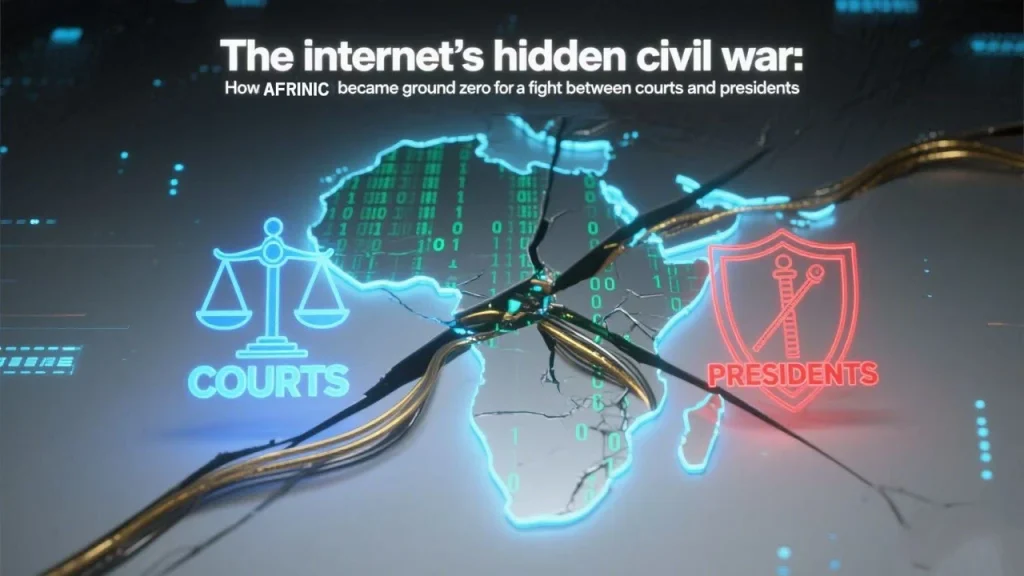- Mauritian Supreme Court blocks executive interference in AFRINIC, igniting conflict over legal sovereignty
- Cloud Innovation challenges foreign-backed registry control, calling for constitutional order and compliance
AFRINIC paralysed as courts and presidents clash
AFRINIC, the African Network Information Centre, remains leaderless, boardless, and legally paralysed. Following the annulment of its June 2025 election due to a proxy dispute, no new board has been seated. Its August vote is likely to be delayed, despite court orders mandating a return to democratic governance.
Recently, the Mauritian Supreme Court issued an injunction blocking a judicial investigation backed by the government. The Court deemed the move an inappropriate use of judicial resources and a threat to the independence of the bench. This followed its earlier ruling that AFRINIC must hold elections under the constitutional framework, free of external political interference.
Yet AFRINIC’s interim receiver remains in power. Backed by the executive arm of the Mauritian state and foreign actors, the receiver continues to govern the registry without electoral legitimacy. The Supreme Court’s directive remains ignored, setting the stage for a legal confrontation between national institutions and external influence.
Also read: Cloud Innovation calls for AFRINIC wind-up after ‘impossible’ election standards
Also read: EXPOSED: The letter that reveals who was really benefitting from AFRINIC’s lawsuits
When CEOs defy courts, governance becomes geopolitics
At the heart of this institutional disobedience stands Kurt Lindqvist, CEO of ICANN. Despite clear judicial guidance, Lindqvist has continued to recognise AFRINIC’s unelected management. His actions—widely viewed as executive alignment against judicial oversight—have escalated concerns that ICANN is enabling authoritarian-style control over Africa’s internet infrastructure.
On 24 December 2024, under Lindqvist’s leadership, ICANN ratified a new ICP-2 compliance framework. This document, adopted without community consultation, introduced a mechanism enabling ICANN to unilaterally derecognise regional internet registries. Though framed as administrative, its implications grant the ICANN executive arm disproportionate influence over global RIR legitimacy.
While Lindqvist defends the move as necessary to maintain operational continuity, critics argue that support for AFRINIC’s receiver—despite court rulings—amounts to interference in a sovereign constitutional process. Legal observers warn this undermines judicial supremacy and sets a precedent where foreign executives override national courts.
One of the strongest institutional voices pressing for compliance with the court’s rulings has been Cloud Innovation Ltd. (CI), AFRINIC’s third-largest resource member. CI has filed legal petitions demanding that AFRINIC return to lawful elections and that ICANN respect national judicial rulings. It has characterised the current governance structure as “untenable” and warned that ongoing foreign interference risks delegitimising the entire RIR system.
CI has also publicly called for ICANN and the Number Resource Organization (NRO) to immediately appoint an existing RIR to take over AFRINIC’s functions under the terms of ICP-2—not to create a new registry, but to ensure continuity where governance has failed.
A civil war in law, with global implications
What is unfolding in Mauritius is more than administrative failure. It is a civil conflict over legal authority—between a judiciary grounded in legal tradition, and a president-aligned regime leveraging foreign support to override court orders.
Observers increasingly warn that if a foreign executive such as Lindqvist can ignore constitutional rulings with impunity, the very premise of regional self-governance collapses. In this model, international infrastructure governance becomes beholden to power, not process.
AFRINIC’s crisis now serves as a cautionary tale. It illustrates how internet governance, once built on ideals of openness and community, can be quietly overtaken by executive power and geopolitical alignment. For African stakeholders and global observers alike, the outcome of this confrontation will shape not just the future of one registry—but the credibility of global internet governance itself.

